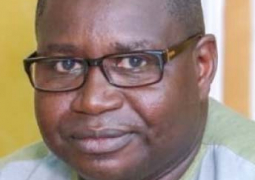Prof.
Adriana Kaplan, executive director, Wassu UAB Foundation has revealed that 30
years of ethnographic research including the introduction of FGM/C in the
academic curriculum in all health sciences studies among other achievements,
The Gambia seems the first country in the world to have a holistic and
respectful approach, evidence based and results oriented.
She
added that the Wassu Gambia methodology has been replicated as a model in
Kenya, Tanzania and is being implemented now in Casamance, Senegal.
Madam
Kaplan made these remarks recently during the opening of the IV international
forum on FGM/C in The Gambia organised under the framework of the EU funded
project: “Evidence into Action- Applied Research & Knowledge Transfer for
the Management and Prevention of Female Genital Mutilation/Cutting in The
Gambia.”
Each
year 6 February is commemorated as International day of Zero Tolerance on
FGM/C.
The
forum which brought together health professionals, tutors and students, judges
and magistrates, policymakers, legislators, community and religious leaders,
youth and women kafos is meant to share experiences and knowledge. This is
based on recognition of the important role that proper and adequate scientific
research can play, in efforts to end FGM/C.
The
forum also is aimed at improving girls´ and women´s health, recognising their
right to personal integrity and freedom, on the basis of social equality,
contribute to the 5.3 Sustainable Development Goals to eliminate all harmful
practices including forced marriage and FGM.
“We know that prevalence still remains high
globally and decline is much slower than expected, despite tremendous efforts
have been done,” she said.
She
added that The Gambia, with the last estimations being 75%, three in four women
and girls have undergone the practice in the country. She pointed out that one
of the major conquests has been the amendment of the Women’s Act banning Female
Circumcision by the National Assembly in December 2015.
Prof.
Kaplan noted that there is a social and cultural environment where FGM/C is an
entrenched tradition, mixed with religious misconceptions and a social norm
pushed by a gerontocratic society.
She
further said that we must also consider new threats by the shifts in the
practice like medicalisation, where according to their surveys; The Gambia is
reaching over 10% performed by health professionals.



